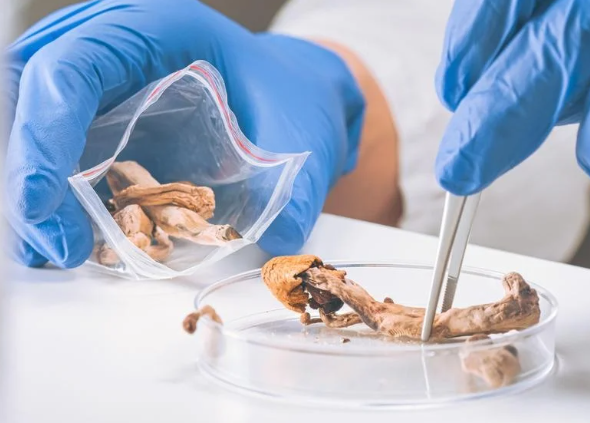Psychedelics: The New Frontier in Modern Medicine?
The past decade has seen a resurgence in the research and application of psychedelic substances, particularly psilocybin, MDMA, and LSD, in the field of mental health treatment. Once stigmatised and associated with counterculture and recreational use, these psychoactive compounds are now being viewed in a new light, as potential game-changers in psychiatry, offering revolutionary treatment options for mental health disorders.
A Historical Perspective
The use of psychoactive substances has deep historical roots. Indigenous communities across the globe have utilised hallucinogenic plants, like peyote cacti and 'magic' mushrooms, for thousands of years, recognising their potential for healing and spiritual exploration.
In the mid-20th century, researchers began to explore the therapeutic potential of these substances. Pioneering studies in the 1950s and 60s demonstrated promising results, particularly in treating addiction and mental health disorders. However, the societal and political backlash against these substances in the subsequent decades led to their criminalisation, effectively halting research for over forty years.
The Resurgence of Psychedelic Research
The past decade has witnessed a resurgence in the scientific investigation of psychedelics, particularly psilocybin (the active compound in magic mushrooms), MDMA (commonly known as ecstasy), and LSD. The potential of these substances to revolutionise mental health treatment is now being recognised once more, with numerous clinical trials and research projects underway.
Psilocybin and Mental Health
Psilocybin, the active ingredient in 'magic' mushrooms, has attracted considerable interest in recent years. This naturally occurring psychedelic compound has been shown in several studies to hold significant potential in treating a variety of mental health disorders.
One of the most promising areas of psilocybin research is its application in treating depression and anxiety. Psilocybin-assisted therapy has been found to produce rapid, profound, and enduring relief from these conditions. The compound has been granted 'breakthrough therapy' designation by the FDA for the treatment of depression, signalling its potential to surpass existing treatments.
In addition to depression and anxiety, psilocybin has also been studied for its potential in treating addiction. Recent studies have shown that psilocybin therapy can be highly effective in treating tobacco and alcohol addiction, providing hope for a condition that is notoriously difficult to treat.
MDMA and PTSD
Another substance that is garnering attention in the field of mental health treatment is MDMA, more commonly known as ecstasy. MDMA is particularly being studied for its potential in treating post-traumatic stress disorder (PTSD).
MDMA-assisted therapy has shown significant promise in helping individuals process and overcome trauma, leading to long-term improvements in PTSD symptoms. The success of these studies has led to the FDA and EMA approving multicentre studies for PTSD treatment using MDMA.
LSD and Mental Health
LSD, while a more controversial substance, is also being researched for its potential therapeutic effects. Studies have shown that LSD-assisted therapy can be effective in treating anxiety, depression, and addiction. While the research into LSD is not as advanced as that into psilocybin or MDMA, the initial results are promising.
The Therapeutic Process
The therapeutic use of psychedelics typically involves a combination of the psychedelic substance and psychotherapy, administered in a controlled setting. The psychedelic experience is thought to help individuals access and process deep-seated emotions and traumas, leading to profound and lasting changes in their mental health.
The therapy process generally begins with preparatory therapy sessions, followed by several therapy sessions in which the psychedelic substance is administered. Further psychotherapy is conducted following the psychedelic experience to help individuals process their experiences and work on achieving their mental health goals.
The Mechanism of Action
Psychedelics are believed to work by promoting neuroplasticity, the brain's ability to form new connections and pathways. This can lead to long-lasting changes in the brain that improve mental health and well-being.
The primary target for these psychedelic drugs is the serotonin 5-HT2A receptor, where they stimulate the receptor. This stimulation is believed to produce the psychedelic effects and is crucial in the healing process during psychotherapy.
Legal and Regulatory Challenges
Despite the promising results from research, there are significant legal and regulatory hurdles to the therapeutic use of psychedelics. Most psychedelics are classified as Schedule I drugs under the Controlled Substances Act, meaning that they are considered to have a high potential for abuse and no accepted medical use. This makes it difficult for researchers to study these substances and for therapists to use them in clinical settings.
However, attitudes towards psychedelics are changing. In recent years, there has been a growing movement to decriminalise or legalise psychedelics for medical and therapeutic use. Several cities in the United States have already decriminalised psilocybin, and efforts are ongoing to legalise the medical use of psychedelics in several states.
The Future of Psychedelic Medicine
The early results of research into the therapeutic potential of psychedelics are extremely promising. As research continues, it's likely that we will see more widespread acceptance and use of these substances in medical and therapeutic settings.
The hope is that psychedelics can offer new and effective treatment options for individuals struggling with mental health conditions, providing relief where traditional treatments have fallen short. However, more research is needed to fully understand the potential therapeutic benefits of psychedelics and how they work in the brain.
While the journey to fully integrating psychedelics into modern medicine is far from over, the progress made so far offers a beacon of hope for those seeking new approaches to mental health treatment. The 'psychedelic revolution' in psychiatry may well be on the horizon, promising a new era in mental health care.
Conclusion
The resurgence of interest and research into the therapeutic potential of psychedelics signifies a paradigm shift in the field of psychiatry. These substances, once stigmatised and criminalised, are now being recognised for their potential to revolutionise mental health treatment. As we continue to explore their therapeutic potential, there is hope that psychedelics will become a vital tool in our arsenal for mental health care, offering new hope and healing to those suffering from mental health conditions.



